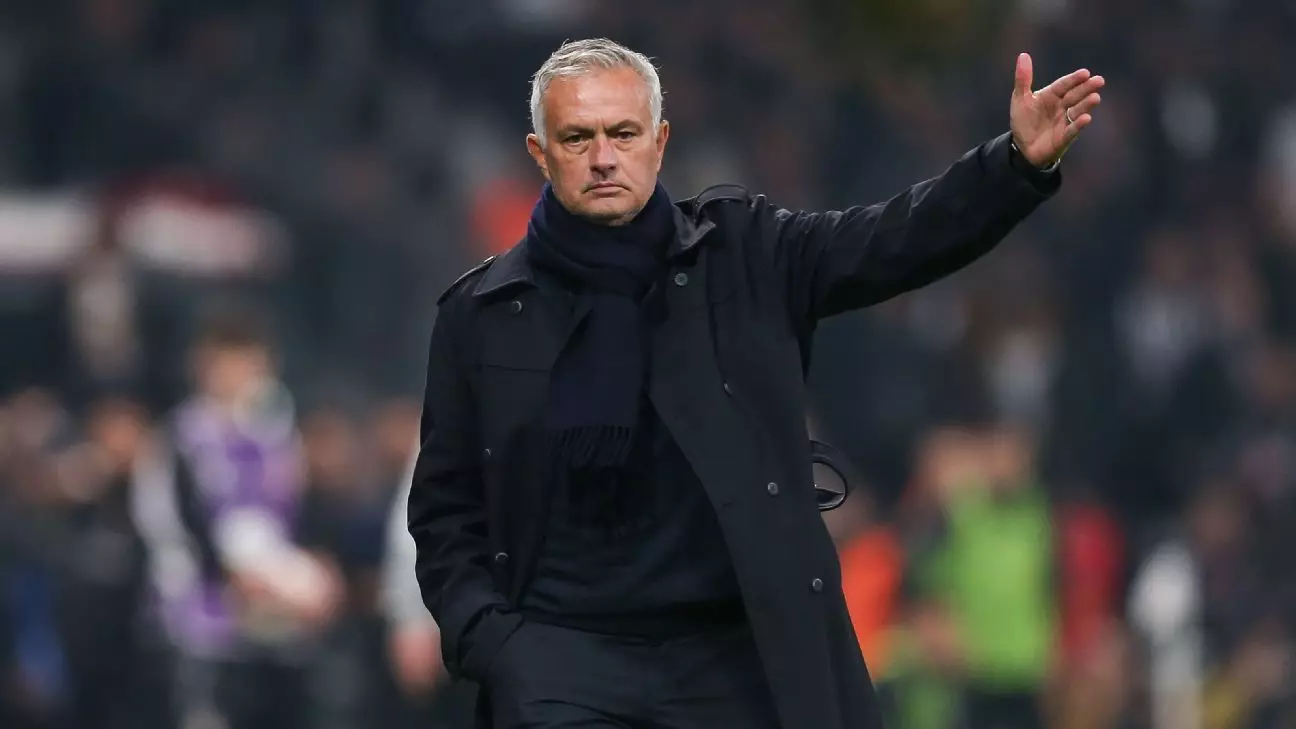The world of football often resembles a theater, with its coaches and players playing the roles of protagonists and antagonists in an ongoing saga that captivates audiences worldwide. A recent exchange between two of football’s most prominent figures, José Mourinho and Pep Guardiola, underscores this notion. Mourinho, now the head coach of Fenerbahçe, has once again reignited the historic rivalry he shares with Guardiola, the Manchester City manager. The arguments that underpin their rivalry involve issues that strike at the heart of how fair competition ought to be in the sport, especially regarding financial regulations and the treatment of clubs.
The tension between Mourinho and Guardiola dates back to their managerial duels in Spain’s La Liga, where they vied not just for trophies but for the very soul of footballing philosophy. Guardiola, lauded for his possession-based attacks and commitment to youth development, clashes sharply with Mourinho, whose pragmatic style prioritizes results over aesthetics. These contrasting principles set the stage for their long-standing rivalry, a duel that extends beyond tactical battles to encompass a philosophical debate on the nature of success in football.
Mourinho recently responded to claims made by Guardiola, who suggested that Mourinho harbors wishes for Manchester City to be relegated amid allegations of financial malpractice. Guardiola’s remarks followed a provocation from Liverpool fans during a match, where he gestured to signify his past successes with City. In contrast, Mourinho asserted that what he truly seeks is ‘justice in football,’ a sentiment that strikes at the heart of the ongoing debate about fairness in how footballing bodies enforce financial regulations.
Undoubtedly, Mourinho’s insistence on ‘justice’ highlights a broader issue within the football community: the apparent disparity in how different clubs are treated when it comes to financial discrepancies. In his statement, Mourinho indicated that smaller clubs face severe consequences for financial oversights, while larger, wealthier clubs seem to maneuver through regulations unscathed. His assertion resonates deeply with many fans and club owners who believe that Financial Fair Play (FFP) should apply equally to all, regardless of a club’s financial prowess.
Mourinho illustrated his point by recalling his experiences at AS Roma, where budget constraints significantly limited his ability to build a competitive squad. Such restrictions are commonplace for smaller clubs; Mourinho’s plight underscores an opinion many share in football circles—that the system is designed to benefit the financially elite at the expense of smaller, equally passionate clubs striving to make their mark.
In the wake of his verbal sparring match with Guardiola, Mourinho made a concerted effort to clarify his relationship with the City manager. He emphasized that, although their public interactions may seem contentious, there lies a genuine respect and a history between the two men that should not be overlooked. They shared formative years together at Barcelona, where Mourinho served as an assistant coach and Guardiola as a player. This shared history complicates the rivalry, indicating that while they may often find themselves at odds in public discourse, there are deeper connections that resist the animosity that their words might imply.
In an era where social media often amplifies conflicts and blurs the lines of professional respect, Mourinho’s remarks serve as a reminder that the narrative can shift back to one of mutual admiration. He insists that beneath the surface, both he and Guardiola appreciate the other’s contributions to football—a sentiment that seems lost in the heat of ongoing competitions and media scrutiny.
As Mourinho prepares his team for a Europa League clash, and Guardiola gets ready for a Champions League match, it remains to be seen how their rivalry will evolve. The central question persists: how can football maintain integrity and justice amid a landscape, increasingly dominated by financial prowess? The dialogue initiated by Mourinho shines a light on the need for reevaluation of regulations and, perhaps, a more equitable approach to competition.
Ultimately, this ongoing rivalry between two titans of management may not just serve to entertain but could also help raise awareness of crucial issues within the sport. Regardless of how Mourinho and Guardiola’s narratives unfold, one thing is certain: their rivalry, rooted in respect, competition, and passion, will continue to be a defining element of football’s grand tapestry.

